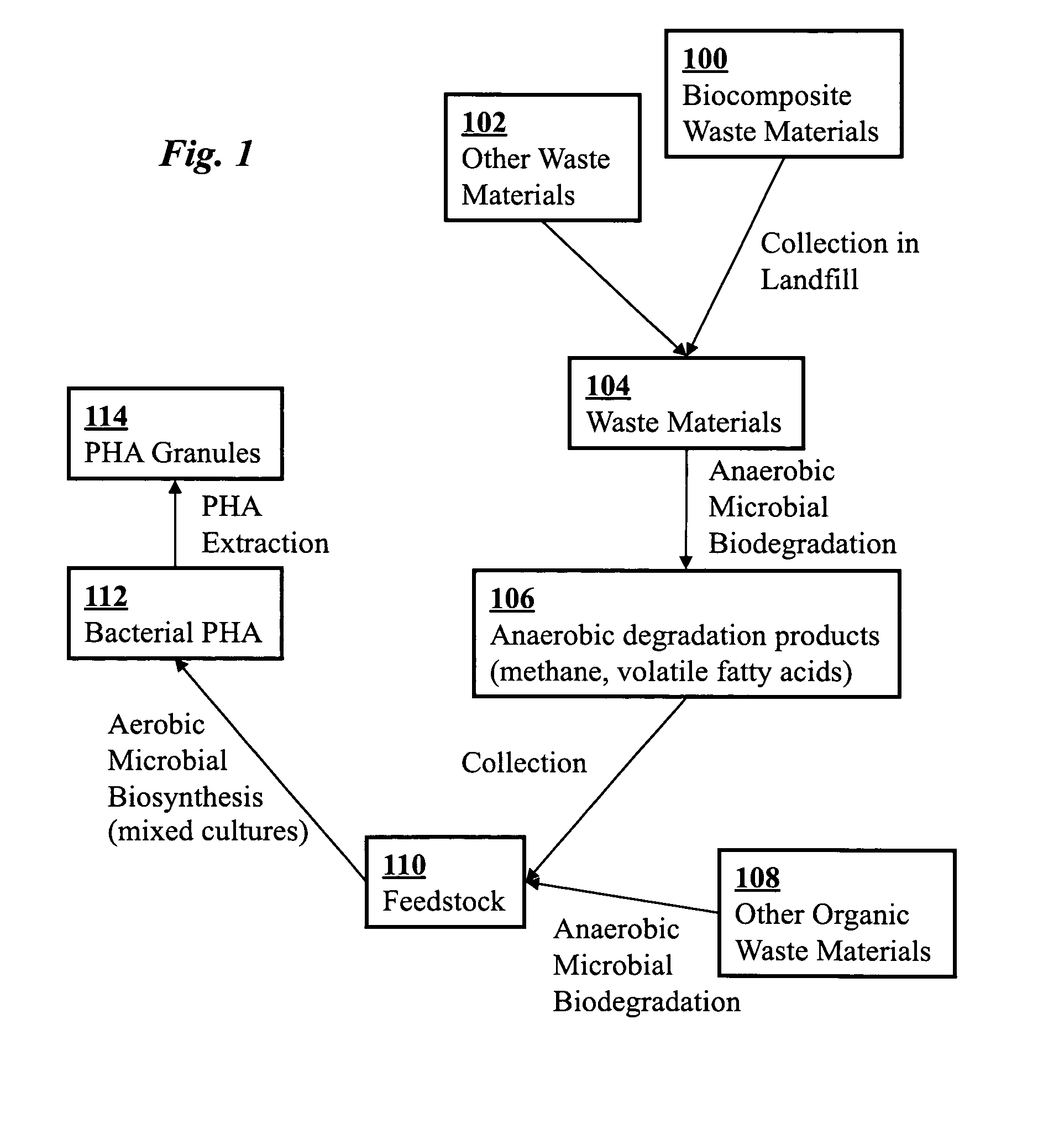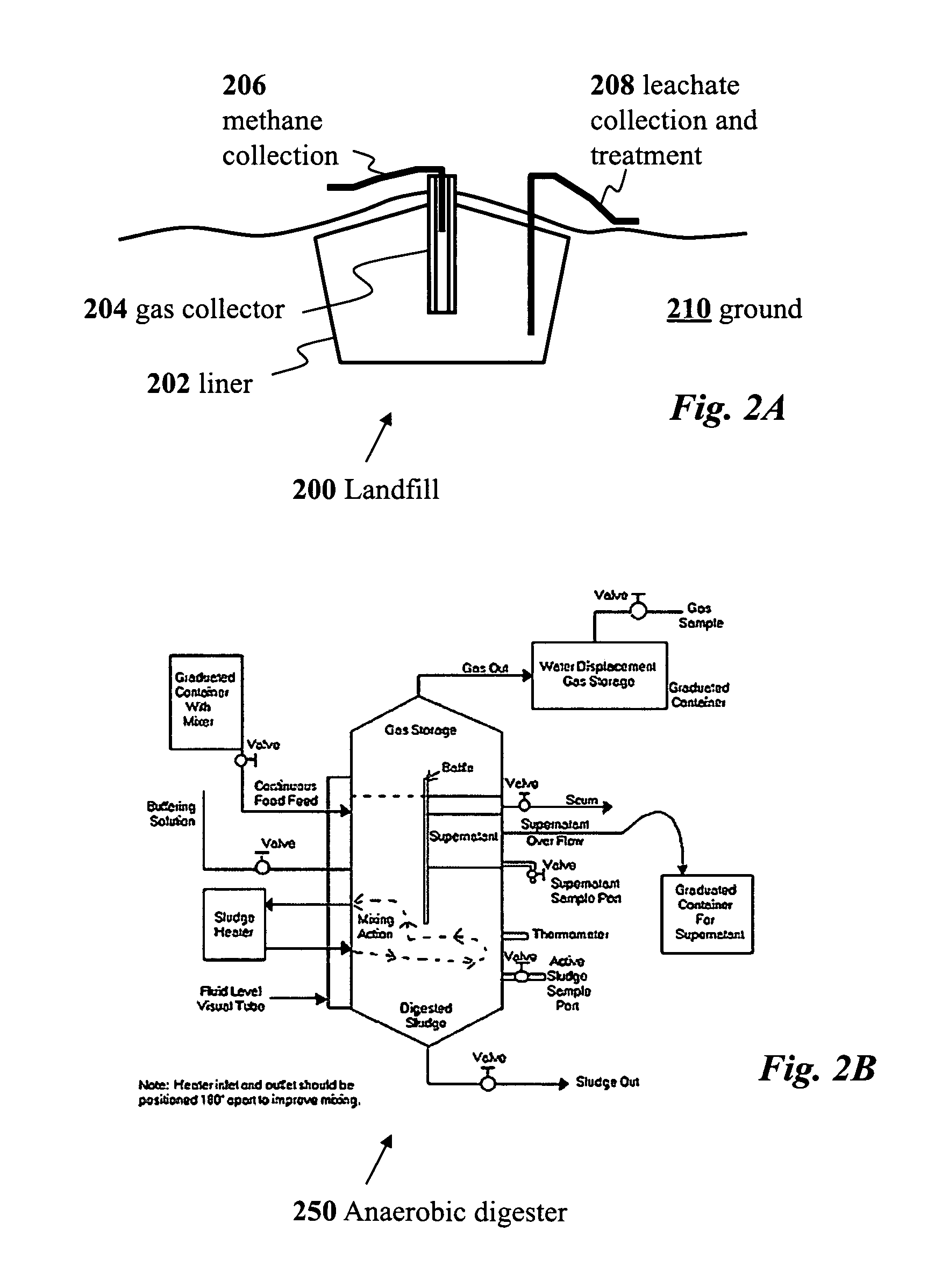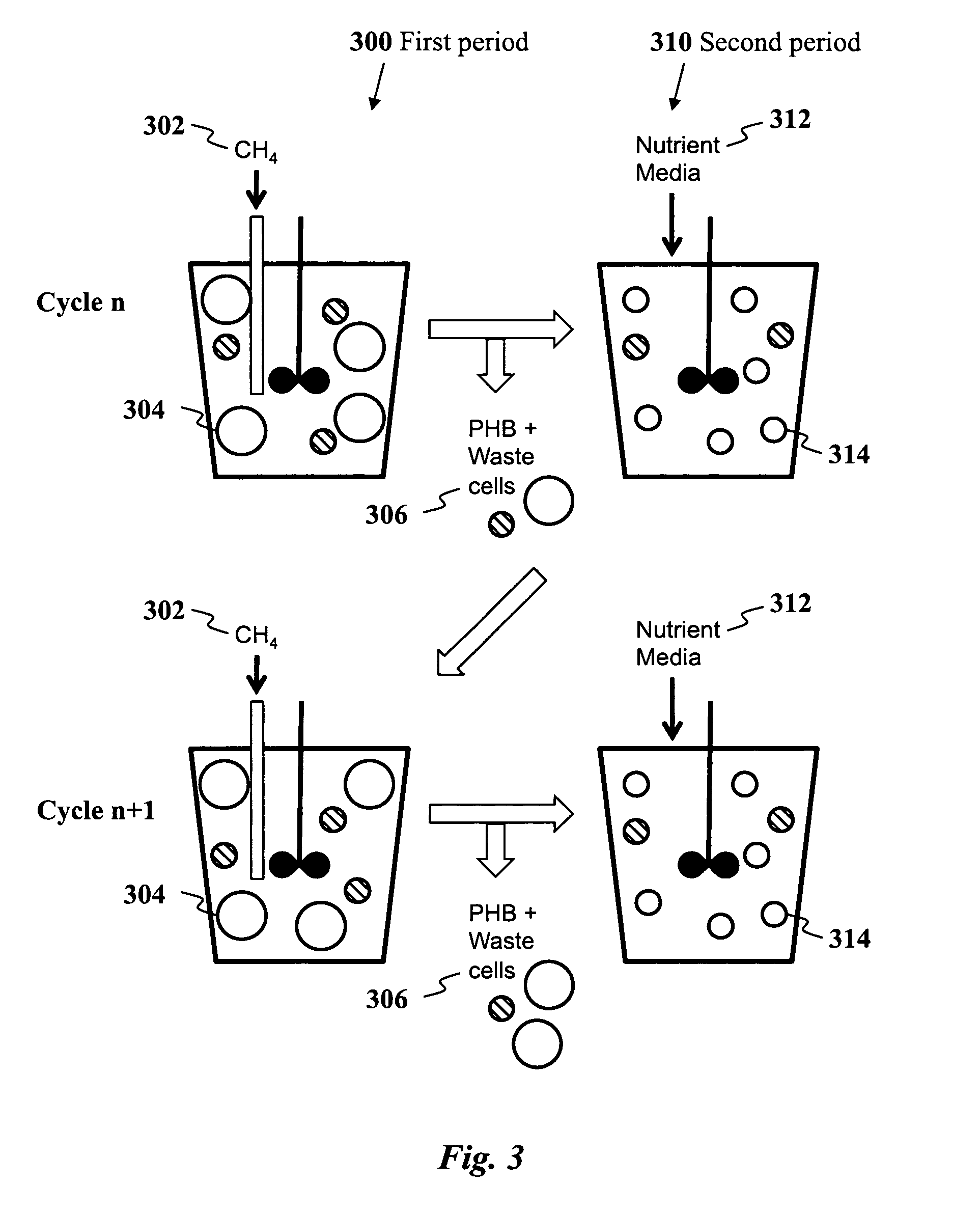Use of selection pressures to enable microbial biosynthesis of polyhydroxyalkanoates from anaerobic degradation products
a technology of anaerobic degradation and selection pressure, which is applied in the direction of fermentation, waste based fuel, etc., can solve the problems of unexplored phb-producing potential of most methanotrophic species, unbalanced growth of phas produced by many bacteria, and high cost of producing pha using low-cost feedstocks. , to achieve the effect of rapid phb degradation, high level and low cos
- Summary
- Abstract
- Description
- Claims
- Application Information
AI Technical Summary
Benefits of technology
Problems solved by technology
Method used
Image
Examples
example
[0053]By way of illustration of the principles of the present invention, a specific example of PHB production using a bench-scale bioreactor will be described. A bench-scale bioreactor (1 L working volume) was cycled daily between periods of 1) methane addition and nitrogen starvation (˜16 hours) and 2) methane starvation with nitrate addition (˜8 hours). A small fraction of the volume (˜50 mL) was sampled twice daily, at the beginning of each period, and was replaced with equivalent media daily. The wasted cells were frozen for analysis of biomass and PHB concentration. The concentration of nitrate in the reactor was monitored daily. Biomass pellets were archived throughout the experiment. DNA was later extracted from these pellets and Terminal Restriction Fragment Length Polymorphism (T-RFLP) with the restriction enzyme Alu I was used to characterize the community within the reactor.
[0054]The bioreactor was inoculated with a methanotroph enrichment culture that had previously been...
PUM
| Property | Measurement | Unit |
|---|---|---|
| working volume | aaaaa | aaaaa |
| volume | aaaaa | aaaaa |
| volatile | aaaaa | aaaaa |
Abstract
Description
Claims
Application Information
 Login to View More
Login to View More - R&D
- Intellectual Property
- Life Sciences
- Materials
- Tech Scout
- Unparalleled Data Quality
- Higher Quality Content
- 60% Fewer Hallucinations
Browse by: Latest US Patents, China's latest patents, Technical Efficacy Thesaurus, Application Domain, Technology Topic, Popular Technical Reports.
© 2025 PatSnap. All rights reserved.Legal|Privacy policy|Modern Slavery Act Transparency Statement|Sitemap|About US| Contact US: help@patsnap.com



